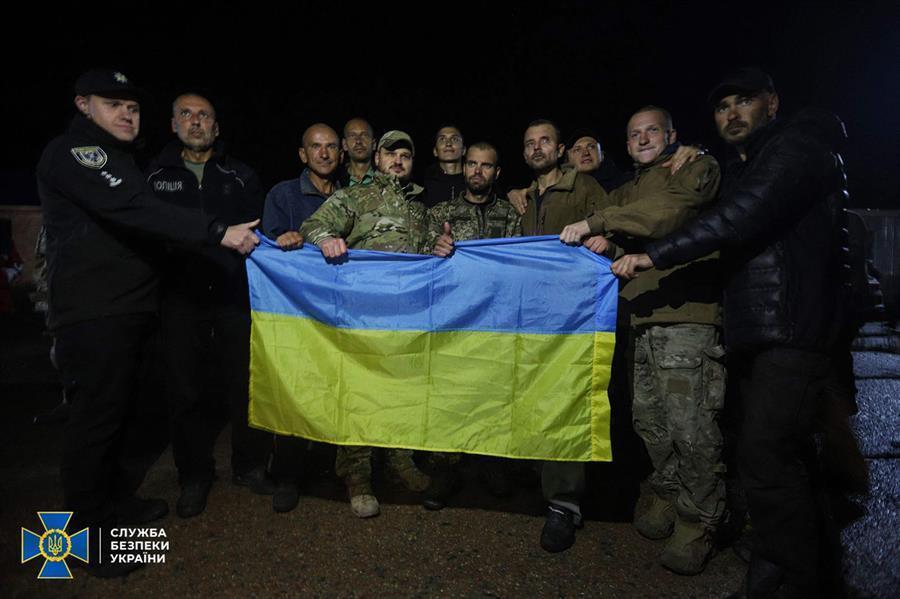
Ukraine has announced the exchange of a record 215 imprisoned soldiers with Russia, including fighters who led the defense of Mariupol’s Azovstal steelworks that became an icon of Ukrainian resistance,” with President Volodymyr Zelensky thanking Türkiye and President Recep Tayyip Erdoğan for the deal.
Zelensky said five military commanders, including leaders of the defense of Azovstal, were taken to Türkiye as part of an operation prepared well in advance and agreed with Erdoğan.
“We returned 215 people from Russian captivity: 188 defenders of Azovstal and Mariupol, 108 Azov warriors, national guards, marines, border guards, policemen, territorial defense and Security Service employees. They’re safe now. We remember and try to save everyone,” Zelensky wrote on Twitter.
“According to our agreements with @RTErdogan, the five released Azov commanders will be in comfortable conditions in Türkiye until the end of the war. They will be able to see their families. I sincerely thank President Erdoğan for his leading role in liberating our people,” he added.
Russia received 55 prisoners, including Viktor Medvedchuk, a former Ukrainian lawmaker and ally of Russian President Vladimir Putin accused of high treason, Zelensky said.
The complex prisoner swap also brought the release of 10 foreigners, including five British nationals and two U.S. military veterans, who had fought with Ukrainian forces. They were released by Russian-backed separatists as part of an exchange mediated by Saudi Arabia, U.S. and Saudi officials said.
U.N. Secretary-General Antonio Guterres welcomed the exchanges, calling them “no small feat,” but adding that “much more remains to be done to ease the suffering caused by the war in Ukraine,” said his spokesman, Stephane Dujarric. The U.N. chief reiterates the need to respect international law on the treatment of prisoners and will continue to support further prisoner exchanges, Dujarric added.
The exchanges drew angry comments from some nationalist commentators in Russia. Igor Strelkov, a Russian officer who led the Moscow-backed separatists in the Donbas when a conflict there erupted in 2014, described the swap as an act of treason, saying that “it’s worse than a crime, worse than a mistake, it’s just sheer stupidity or sabotage.”
Erdoğan flew to New York from a meeting in Uzbekistan with Russian President Vladimir Putin, his third in three months, to tell U.S. viewers that the Kremlin “is willing to end this [war] as soon as possible.”
“Turkish diplomacy has been faultless since the start of the war,” France’s former U.S. and U.N. ambassador Gerard Araud remarked.
“It has evaluated its interests, found a balance between the warring parties and used firmness when necessary while taking advantage of the circumstance.”
A U.N.-backed deal signed in Istanbul in July resumed Ukrainian grain deliveries across the Black Sea for the first time since Russia’s Feb. 24 invasion.
Guterres called the shipments “a beacon of hope” for famine-ravaged parts of the world.